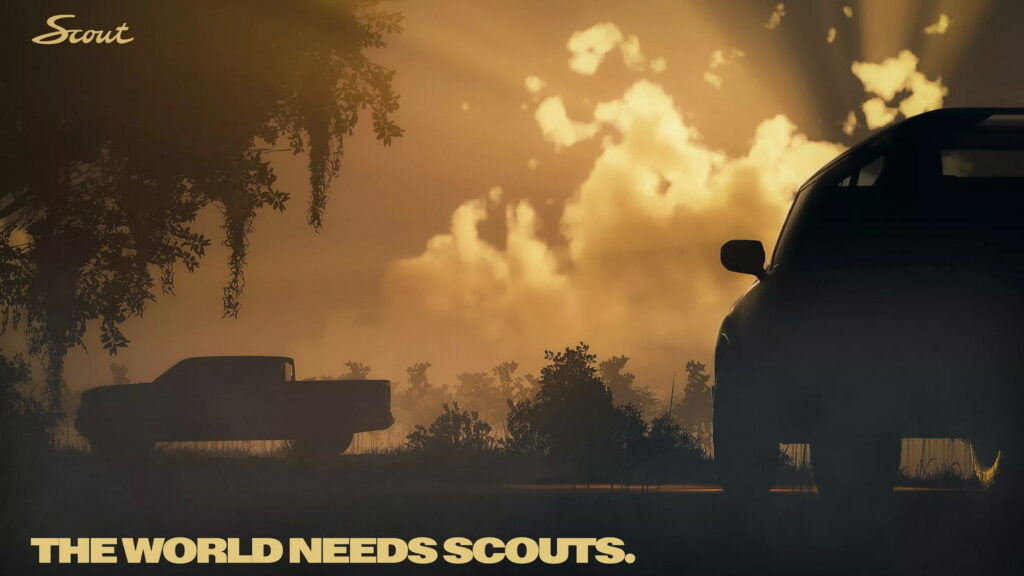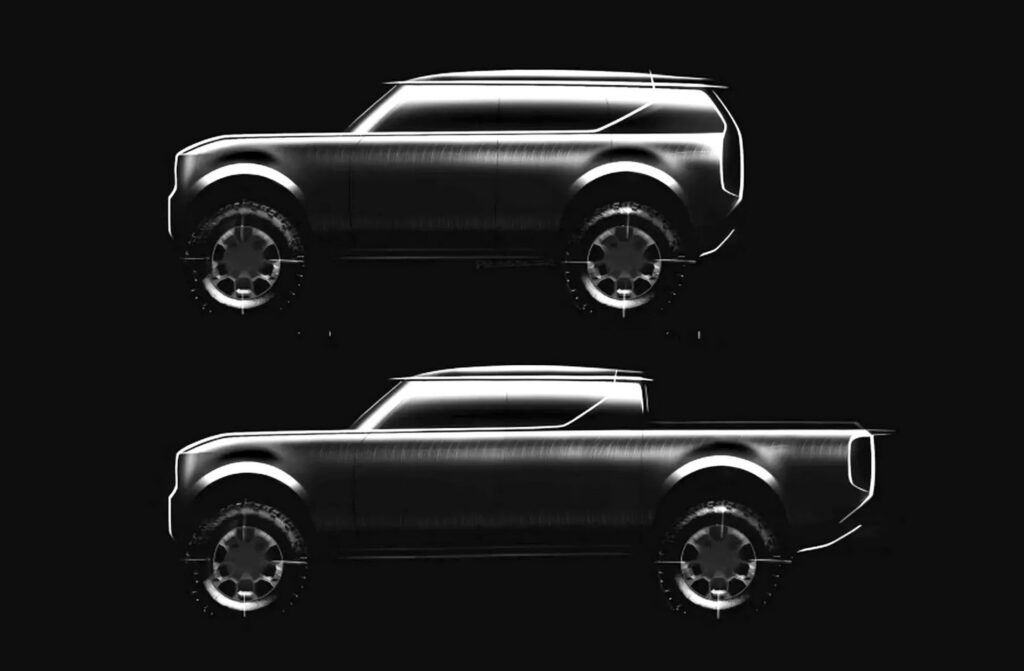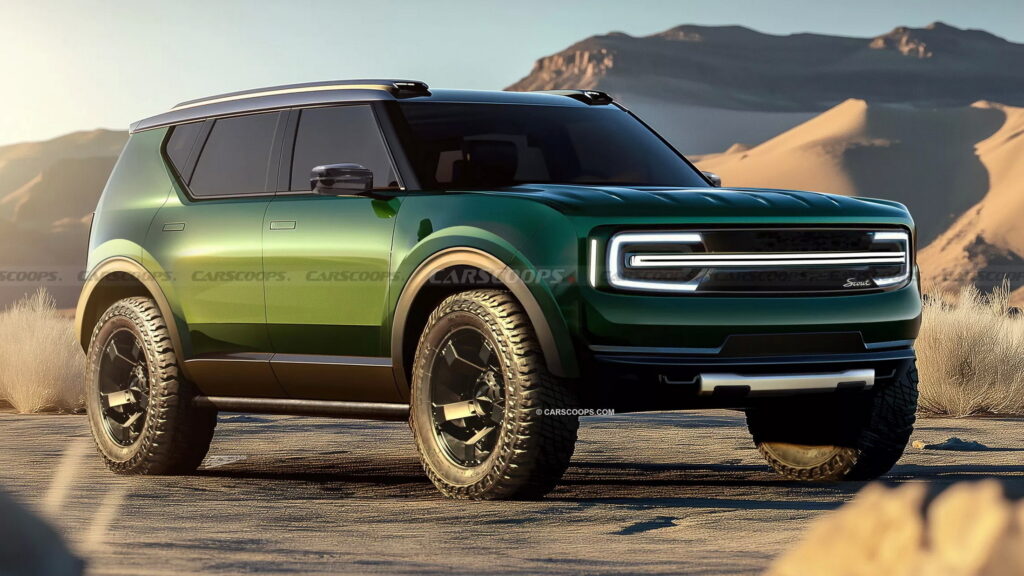Many automakers believe that electric vehicles represent the future of the automotive industry, and have therefore designed them to be as futuristic as possible. That’s all well and good for a premium brand, but the newly revived Scout brand wants its vehicles to be more rugged, so it’s focusing on the joy of the mechanical, instead.
What this means is that Scout’s vehicles will have real door handles, not buttons that provide access (until something goes wrong). In addition, the new EVs will bring back Scout’s “iconic” fold-down windshield.
As a result, Scout’s first vehicles, including an SUV and a pickup truck which do not have a name yet, will feature an upright design, the company’s CEO Scott Keogh told The Verge during a groundbreaking event at the firm’s forthcoming factory in South Carolina. “It’s not a jelly bean,” he emphasized.
Scout’s vehicles will also differ from other EVs in their implementation of tech. Not only does that mean that the company believes “in chunky buttons,” it means that it is focusing on functional tech rather than high tech.
Read: Scout Motors To Reveal First Electric SUV This Summer

The automaker’s first electric vehicles will launch with a simple tech setup to streamline production, and engineers will be testing wiring harnesses and other elements to ensure that they function correctly right off the bat. . While the vehicles won’t initially feature advanced driver assistance systems, they will support over-the-air updates, enabling the company to introduce new features over time.
Scout’s vintage, rugged ethos will be reflected in its badges, mirroring the design from the company’s vehicles of the ’70s. However, this nod to the past doesn’t imply that the vehicles will lack modern features.
Koegh explained that the company’s attitude towards tech is that it should be used where it’s useful, and invisible everywhere else. Keeping things simple will also help keep things cheaper. The automaker told Autonews that it’s aiming for a starting price of $50,000 for its upcoming SUV.
Scout will also be collaborating with other companies to help it appeal to customers who are becoming alarmed at the high price of EVs. Although it will be a completely separate brand from VW, it will use its parent company’s next-gen battery cells, which will be made in Canada, and will go into a wide variety of Volkswagen Group brands. To ensure it’s a great off-roader, Scout is getting help from Magna Steyr, which also assembles the Mercedes G-Class.
Unfortunately, we’ll have to wait until 2026, when production officially kicks off, to truly know how well Scout has managed all of its ambitions. However, we should get our first look at how things are going when the company unveils its first vehicle this summer.





